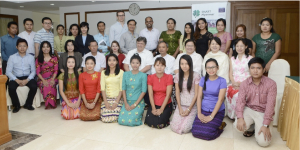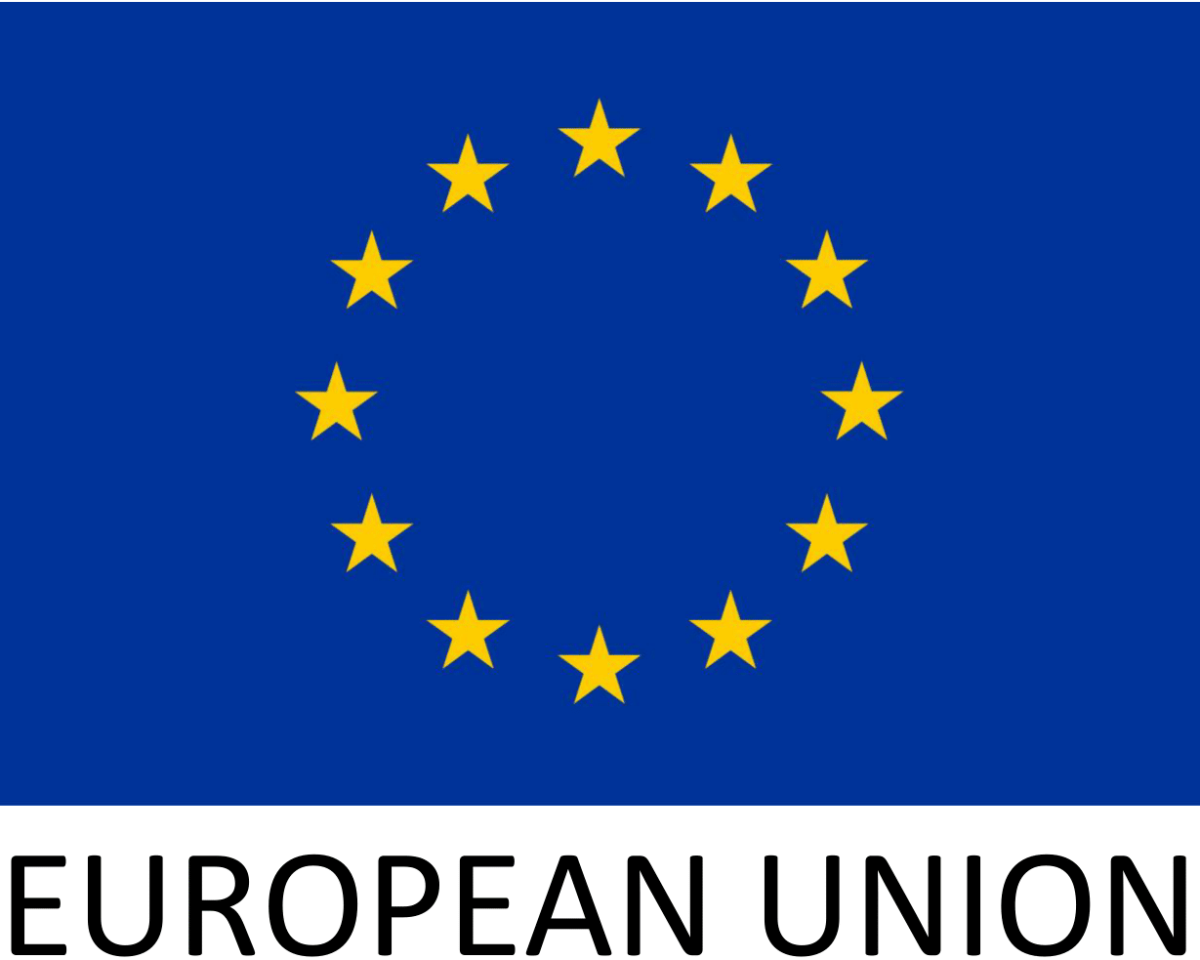 On September 8th 2014, SMART Myanmar and MGMA organized a participatory workshop to discuss practical issues as Myanmar’s garment factories continue an exploratory transition from a CMP to FOB production approach. This workshop brought together a total of 19 participants from 12 factories, all of whom are working closely with the SMART Myanmar production improvement programme. Collectively, the workshop group involved diverse perspectives from the MGMA Chairman, Mr. Myint Soe, the SMART Myanmar sustainable consumption & production team, international garment experts from ESGE, and owners & managers from the dozen participating local garment factories.
On September 8th 2014, SMART Myanmar and MGMA organized a participatory workshop to discuss practical issues as Myanmar’s garment factories continue an exploratory transition from a CMP to FOB production approach. This workshop brought together a total of 19 participants from 12 factories, all of whom are working closely with the SMART Myanmar production improvement programme. Collectively, the workshop group involved diverse perspectives from the MGMA Chairman, Mr. Myint Soe, the SMART Myanmar sustainable consumption & production team, international garment experts from ESGE, and owners & managers from the dozen participating local garment factories.
Mr. Myint Soe, started the workshop with opening remarks. He offered his encouragement for active participation from the factory participants, all of whom are now aiming to transition from a CMP to FOB business model. The first discussion question of the day was: “Are you interested in exporting to the EU market?” Nearly all in attendance expressed a “high” interest in exporting to the EU. Following this, the next question asked was, “What prevents you from exporting to the EU?” Participants shared their difficulties on flip charts, and ESGE experts shared their international perspective and suggested approaches for solving the problems which garment factories are currently encountering. Among the problems are lack of information from where to source the fabrics and accessories, lack of financial services to invest, small order quantities, lack of direct contacts to buyers, lack of knowledge regarding social standards and missing skills in merchandising.
Mr. Christian Maag, Managing Director of ESGE – which is among the largest lingerie manufacturers in Europe – contributed a presentation entitled: How to calculate FOB prices? Participants were greatly interested in this presentation and participated by raising several questions. Ms. Barbara Waeschle, garment technician from ESGE’s quality department and Mr. Anguraj Ponraj, Managing Director of Bodyland Garment Limited also joined this discussion.
A second presentation entitled: Various laboratory instruments used in the textile industry was given my by Mr. Ponraj. This presentation focused on technical methods for assessing textile durability, strength & general composition. Ms. Theeri Kay Thi, SMART Myanmar’s Senior Project Manager for Sustainable Consumption & Production, gave the final presentation by informing the workshop participants about two upcoming trade fair visits which are being organized by the SMART project. These visits will be a great chance for factories to establish further connections with suppliers & retailers from the EU market, and to gain a better general understanding of the EU market by visiting different retail shops. Ms. Kay Thi finished her remarks by providing information about the upcoming “Social Compliance Training”, another workshop being organized by SMART Myanmar’s SCP team.
This workshop was highly successful and proved immensely valuable to the participants because of the focus on tangible & practical skills. One factory owner and workshop participant stated: “We do appreciate SMART's practical supports towards Myanmar Garment Industry. We expect to obtain more applicable technical and institutional assistance in the near future.”
Participants came away with a better knowledge of the difficulties & steps needed to scale-up to FOB and of the important & key aspects of textile testing. Participants were also adequately informed and motivated for SMART Myanmar’s upcoming social compliance training, and for the future visits to European trade fairs in 2015.










